NEET Exam > NEET Notes > Chemistry Class 11 > How to Study Physical Chemistry for NEET
How to Study Physical Chemistry for NEET | Chemistry Class 11 PDF Download
Physical Chemistry is an important part of the NEET syllabus. It combines theory with numerical problem-solving, so understanding the concepts and practising calculations are both key. This guide shares useful strategies to help you prepare for Physical Chemistry in a way that matches the NEET syllabus.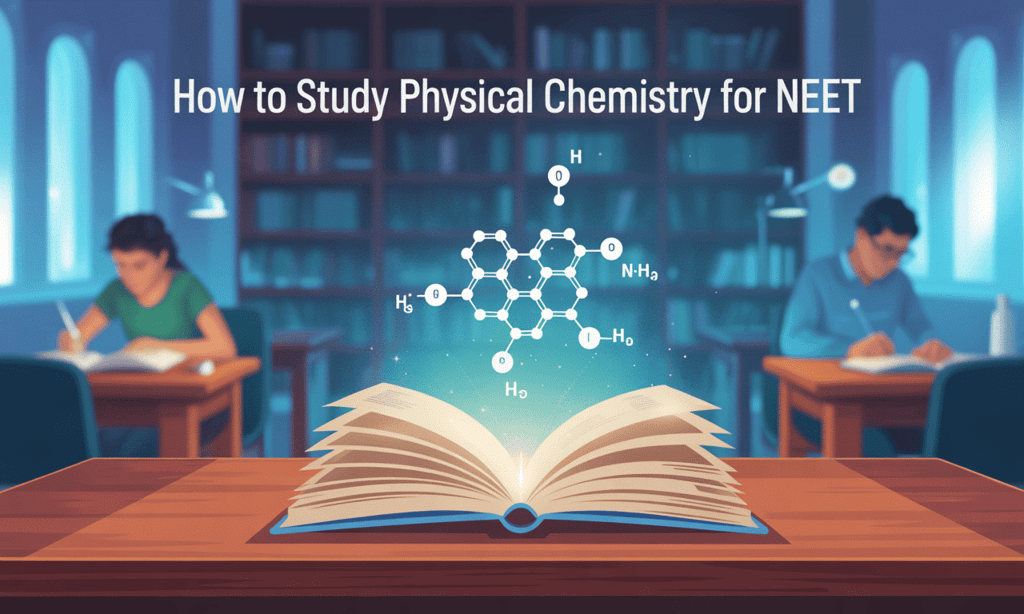
Understanding the NEET Physical Chemistry Syllabus
The NEET Physical Chemistry syllabus covers topics for both NEET Main and NEET Advanced. Below is a concise overview based on the standard syllabus:
- Some Basic Concepts of Chemistry: Mole concept, stoichiometry, concentration terms (molarity, molality, mole fraction).
- Atomic Structure: Bohr’s model, quantum numbers, electronic configuration, and spectral lines.
- States of Matter: Gaseous state (ideal gas laws, kinetic theory), liquid state, and solid state (crystal systems).
- Thermodynamics: First and second laws, enthalpy, entropy, Gibbs free energy, and Hess’s law.
- Equilibrium: Chemical equilibrium (Le Chatelier’s principle, equilibrium constant), ionic equilibrium (pH, buffers, solubility product).
- Redox Reactions and Electrochemistry: Oxidation-reduction, electrochemical cells, Nernst equation, and conductance.
- Chemical Kinetics: Rate laws, order of reaction, Arrhenius equation, and catalysis.
- Surface Chemistry: Adsorption, colloids, and emulsions.
- Solutions: Raoult’s law, colligative properties, and ideal/non-ideal solutions.
Here are some effective strategies to boost your preparation and performance!
Master Core Concepts
- Focus Areas: Begin with foundational topics like mole concept, stoichiometry, and atomic structure, as they underpin other chapters.
- Approach: Understand the theory behind each concept before diving into the numericals. Use diagrams or videos for topics like atomic structure and crystal systems to visualise concepts.
- Resources: Use NCERT Class 11 and 12 textbooks, as NEET Inorganic Chemistry heavily relies on NCERT content.
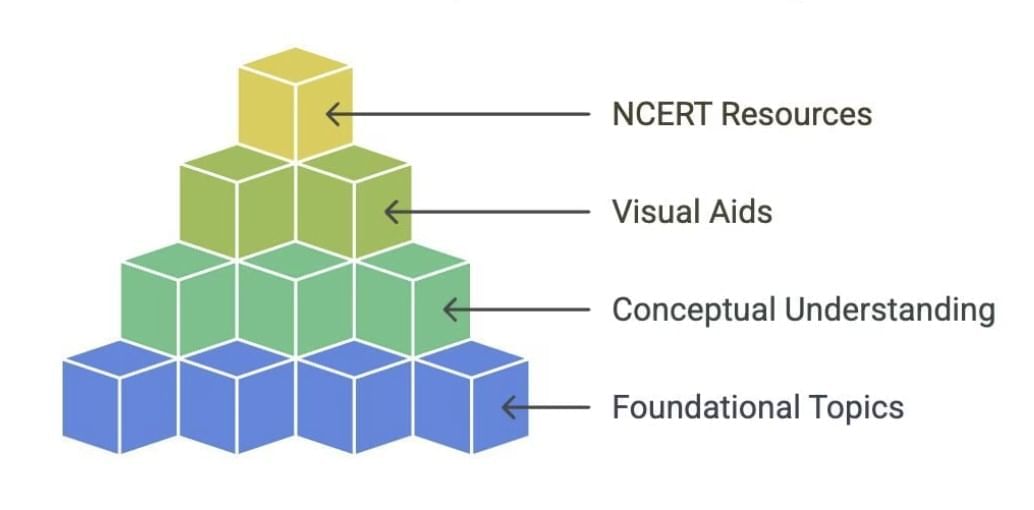 Physical Chemistry Strategy
Physical Chemistry Strategy
Strengthen Mathematical Skills
- Key Skills: Brush up on logarithms (for pH and kinetics), calculus (for rate equations), and algebra (for stoichiometry and thermodynamics).
- Practice: Solve mathematical problems daily to build confidence in applying formulas.
Utilise Quality Study Materials
- NCERT Textbooks: Use Class 11 and 12 NCERT books for a strong conceptual base, as NEET often tests NCERT-based questions.
- Recommended Books:
- Physical Chemistry by P. Bahadur: Ideal for numerical practice.
- Modern Approach to Chemical Calculations by R.C. MukherNEET: Excellent for mole concept and stoichiometry.
- Physical Chemistry by Atkins (select chapters): Useful for a deeper understanding, especially for NEET Advanced.
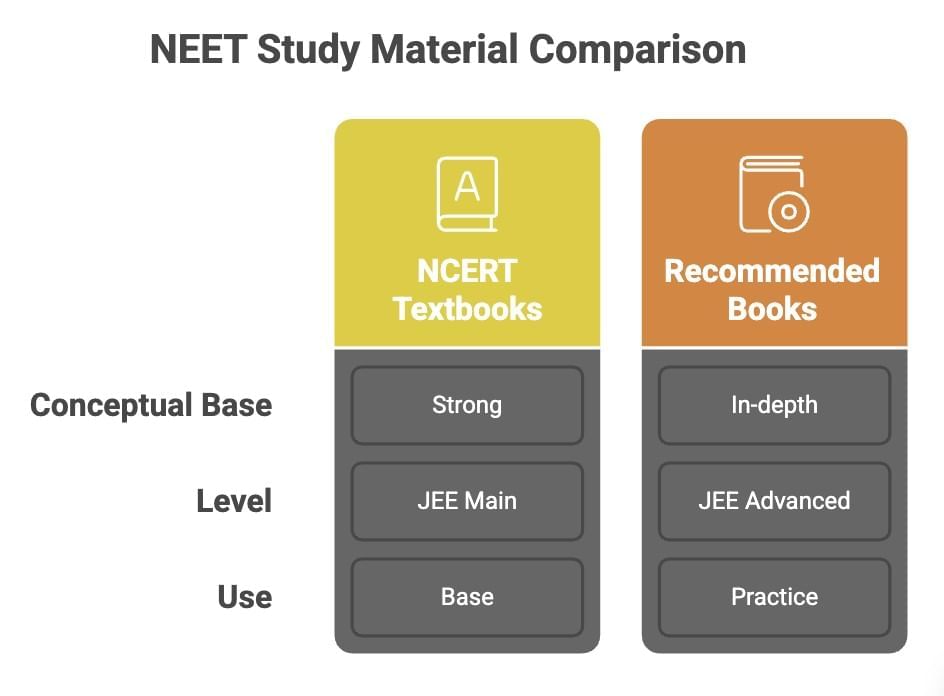
Memorize and Understand Formulas
- Mnemonics: Use mnemonics for sequences like the electrochemical series or crystal lattice types.
- Mindmaps for Chemistry: Make or access short, crisp mindmap for every chapter—especially reactions, concepts, and exceptions. Use EduRev’s ready-made revision notes to save time and boost last-minute preparation. They’re perfect for daily recaps and pre-test brushing.
- Tips and tricks for NEET: Learn shortcut techniques, elimination tricks, and time-saving methods for Physics calculations, tricky Chemistry questions, and Math problem-solving. EduRev’s curated tips help you avoid silly mistakes and improve accuracy under pressure.
- Formula Sheets: Create topic-wise formula sheets (e.g., Thermodynamics: ΔH = ΔU + ΔnRT; Electrochemistry: Nernst equation). Derive formulas to understand their applications rather than rote memorization.
Prioritize Numerical Practice
- DPPs: Incorporating daily practice papers into your preparation is a powerful strategy to build confidence, enhance problem-solving skills, and solidify conceptual understanding.
- Past Years’ Papers: Analyze NEET papers from the last 10 years to identify patterns. Expect 6–8 questions in JEE Main and 5–7 in JEE Advanced from Inorganic Chemistry.
- Mock Tests: Take timed mock tests to enhance recall under pressure.
- Error Analysis: Maintain a notebook to categorize errors (factual, application, or oversight) and revisit them regularly.
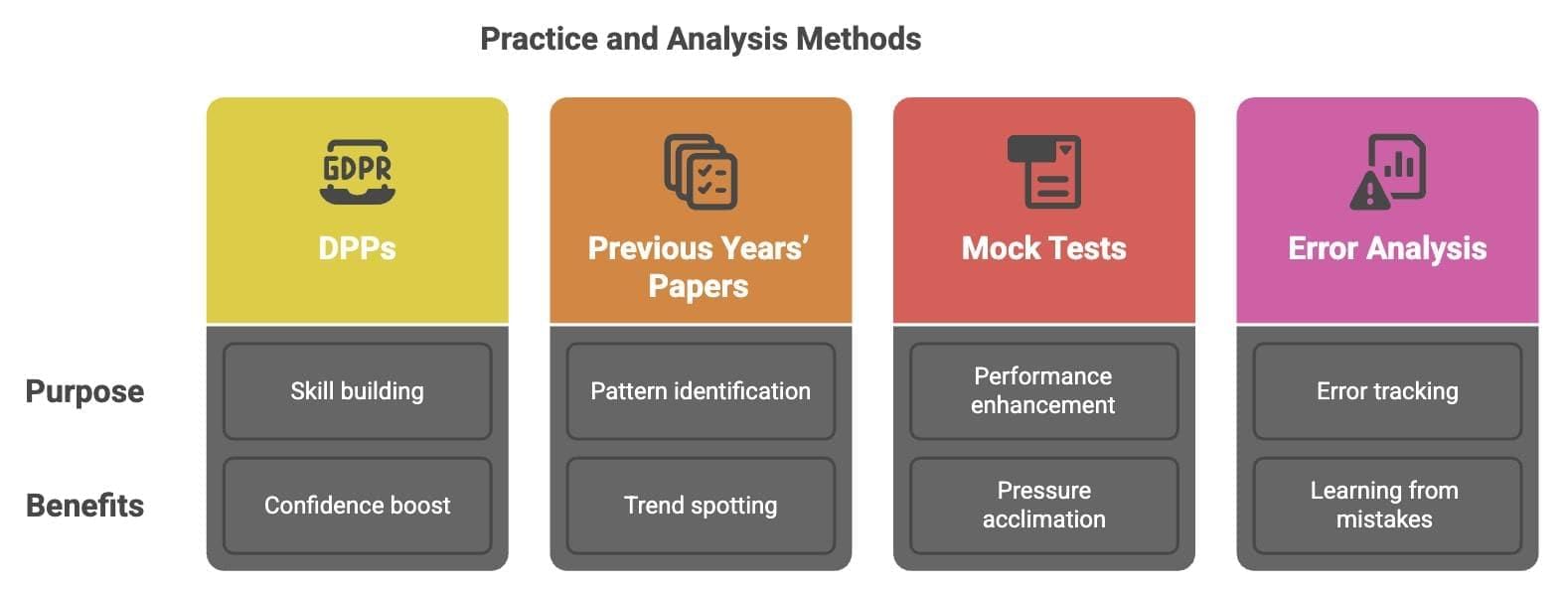
Create a Structured Study Plan
- Syllabus Division: Break the syllabus into manageable sections. Allocate time based on topic weightage:
- High Weightage (4–5 questions): Mole concept, thermodynamics, equilibrium, electrochemistry.
- Moderate Weightage (2–3 questions): Atomic structure, chemical kinetics, solutions.
- Low Weightage (1–2 questions): Surface chemistry, nuclear chemistry, states of matter.
- Weekly Goals: Assign 1–2 topics per week, balancing theory and numerical practice.
- Study Plan for NEET: Access the expert-designed NEET study plan by EduRev, tailored to help you cover every topic efficiently and stay ahead in your preparation.
Solve Previous Years’ Papers
- Purpose: Analyze NEET Main and Advanced papers from the last 10 years to identify question patterns.
- Question Distribution: Expect 8–10 questions in NEET Main and 6–8 in NEET Advanced from Physical Chemistry.
- Approach: Categorize questions by topic and difficulty to prioritize practice.
Practice with Mock Tests
- Simulation: Take timed mock tests to replicate exam conditions.
- Focus: Improve time management and accuracy. Review mistakes to identify weak areas.
Exam Day Tips
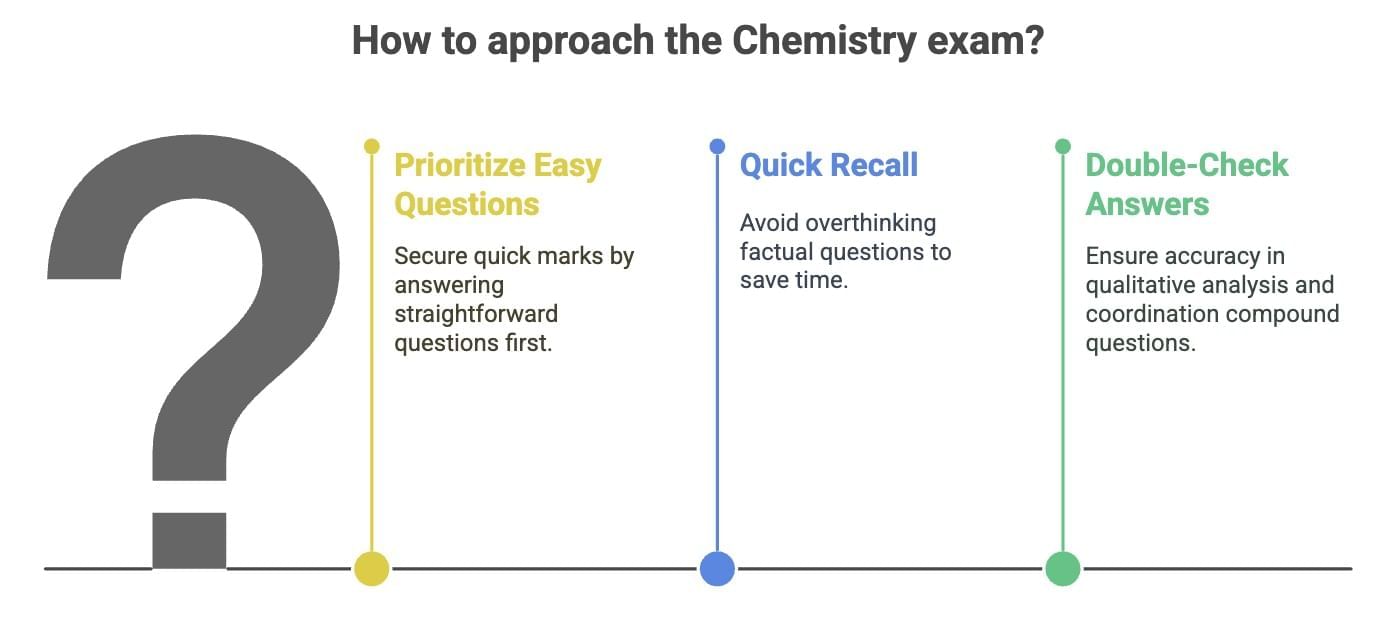
- Prioritize Easy Questions: Start with straightforward topics like mole concept and atomic structure to secure quick marks.
- Avoid Errors: Double-check calculations, especially in multi-step problems (e.g., electrochemistry, thermodynamics).
- Time Allocation: Spend 1–2 minutes per question initially, revisiting complex ones later.
Additional Tips
- Consistency: Dedicate 1–2 hours daily to Physical Chemistry to maintain proficiency in numerical problem-solving.
- Health and Well-being: Ensure 6–8 hours of sleep, regular exercise, and a balanced diet to stay focused.
- Motivation: Set short-term goals (e.g., mastering equilibrium in a week) and reward yourself to maintain momentum.
By following this structured approach, you can effectively prepare Physical Chemistry for NEET, balancing conceptual understanding, numerical practice, and revision to maximize your score.
The document How to Study Physical Chemistry for NEET | Chemistry Class 11 is a part of the NEET Course Chemistry Class 11.
All you need of NEET at this link: NEET
|
114 videos|263 docs|74 tests
|
FAQs on How to Study Physical Chemistry for NEET - Chemistry Class 11
| 1. What are the core concepts I need to master in Physical Chemistry for NEET? |  |
Ans. To excel in Physical Chemistry for NEET, you should focus on core concepts such as chemical equilibrium, thermodynamics, kinetics, and electrochemistry. Understanding these topics will help you tackle a variety of problems and improve your overall performance in the subject.
| 2. Why is it important to strengthen mathematical skills for studying Physical Chemistry? |  |
Ans. Strong mathematical skills are crucial in Physical Chemistry as many concepts involve calculations and quantitative analysis. Topics such as rate laws, equilibrium constants, and thermodynamic equations require a solid grasp of algebra, calculus, and logarithmic functions to solve problems effectively.
| 3. What types of study materials are recommended for mastering Physical Chemistry? |  |
Ans. It is advisable to use quality study materials that include textbooks, reference books, and online resources. Textbooks like "Physical Chemistry" by Peter Atkins and study guides specifically designed for NEET can provide comprehensive coverage. Additionally, utilizing online platforms for video lectures and interactive quizzes can enhance understanding.
| 4. How can I effectively memorize and understand formulas in Physical Chemistry? |  |
Ans. To effectively memorize and understand formulas, create flashcards and summarize key equations. Associating formulas with practical examples or applications can also enhance retention. Regular revision and solving practice problems will help reinforce your understanding and recall of these formulas during the exam.
| 5. What strategies should I use for numerical practice in Physical Chemistry? |  |
Ans. Prioritize numerical practice by solving a variety of problems from different topics. Start with simpler problems and gradually move to more complex ones. Use previous years’ papers and mock tests to familiarize yourself with the exam pattern and types of numerical questions. Consistent practice will build confidence and improve problem-solving speed.
Related Searches





















